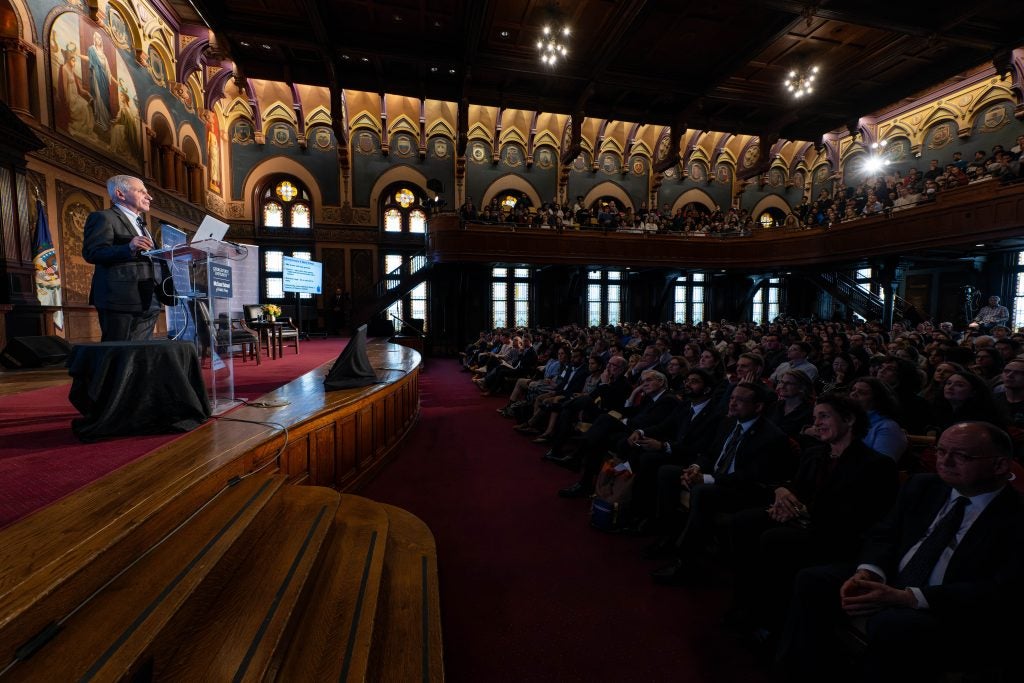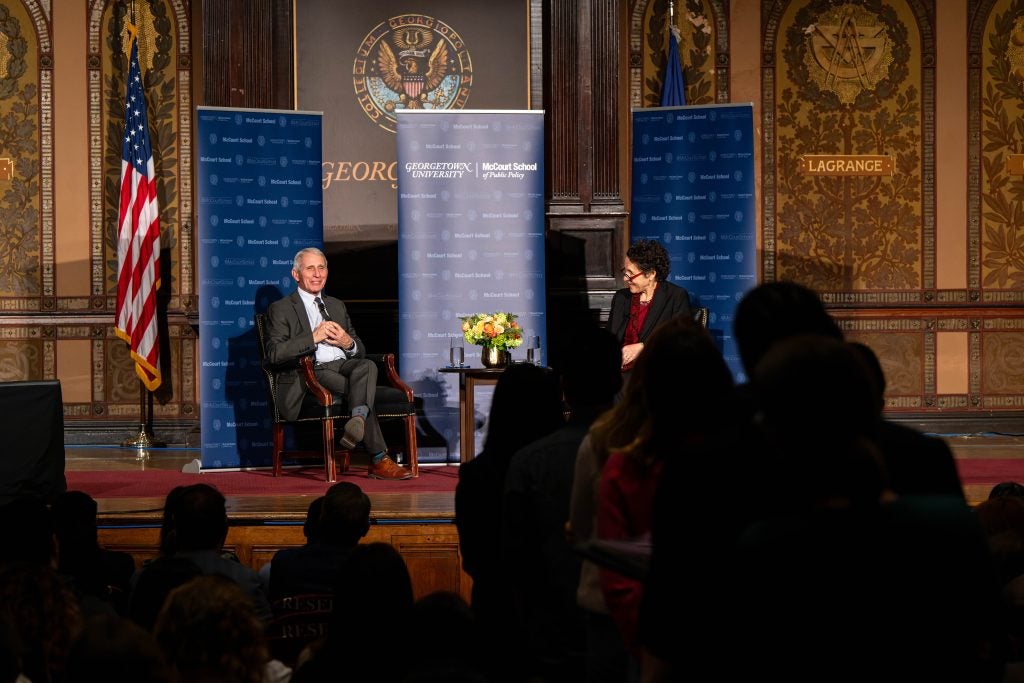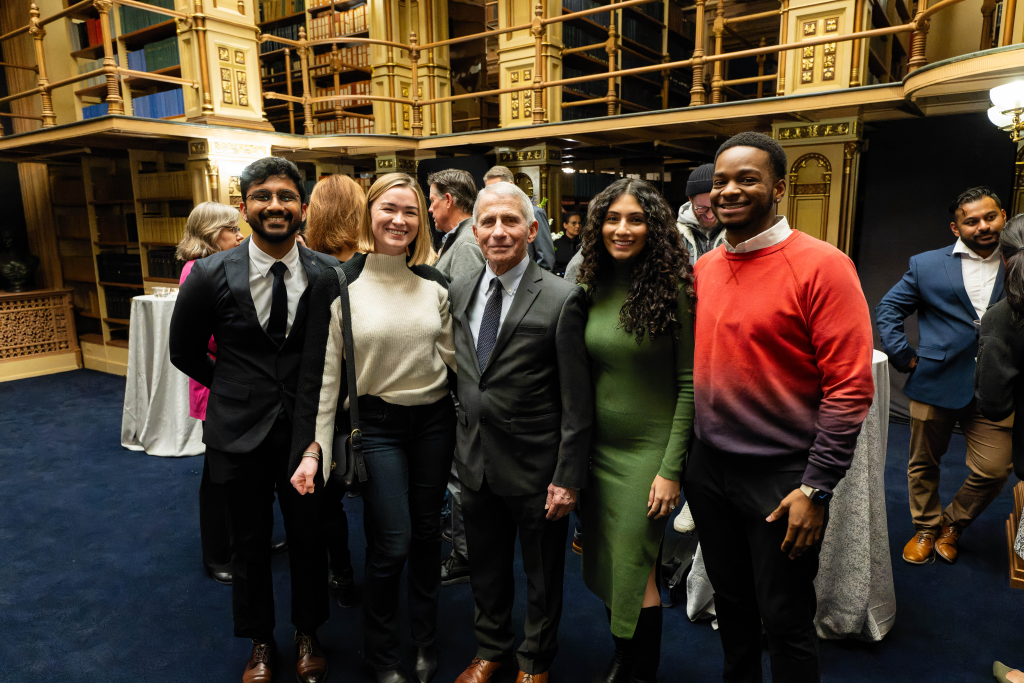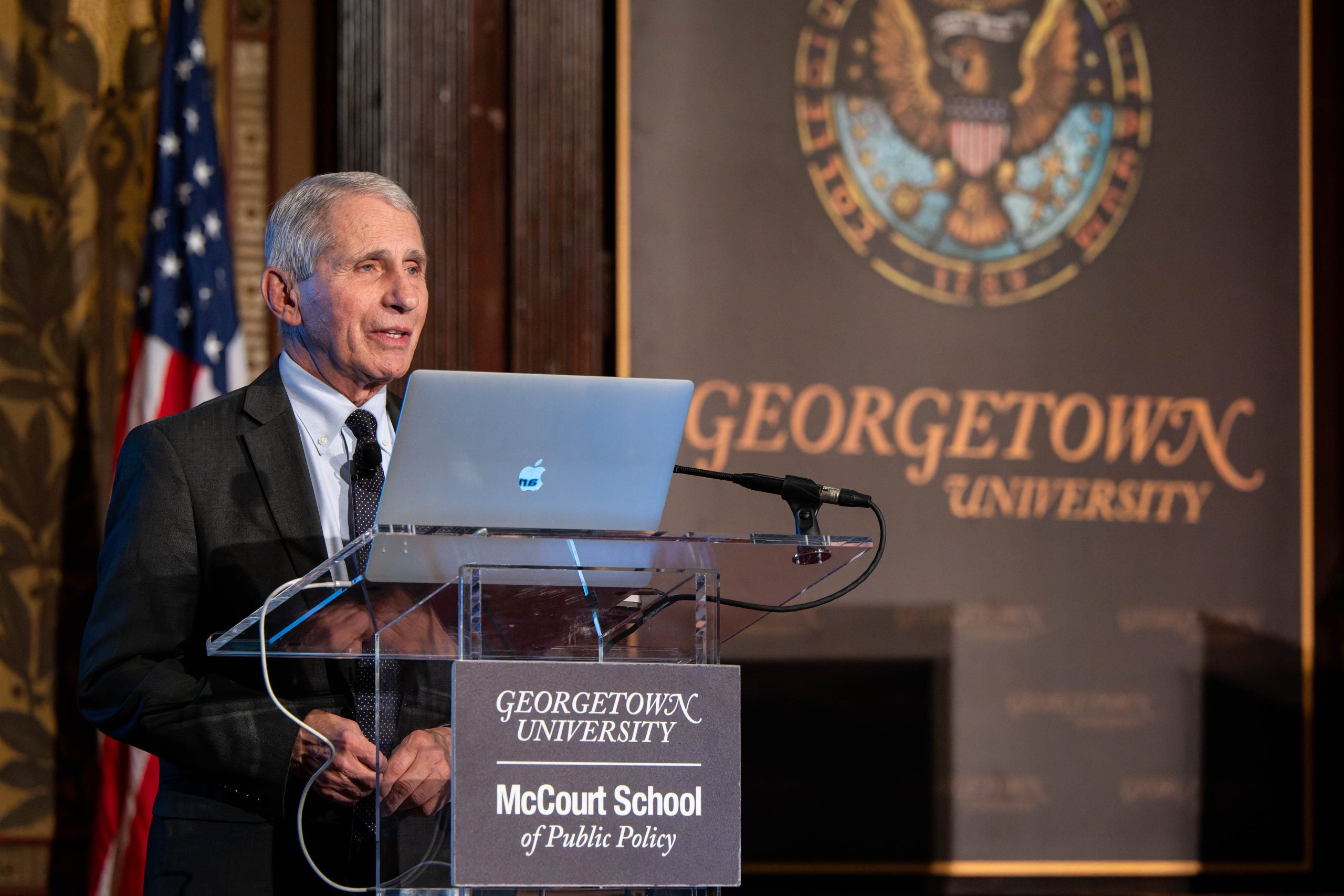Dr. Fauci presents the 10 most compelling lessons learned from COVID
The distinguished university professor and leading immunologist fielded questions from students on pandemic skepticism, politicization and prevention, the link between climate change and the spread of diseases, and advanced physician training.
On February 1, 2024, Dr. Anthony Fauci delivered the McCourt School of Public Policy’s 2024 Whittington Lecture , sharing lessons learned from COVID-19. Dr. Fauci, a distinguished university professor at the McCourt School and the School of Medicine, drew on his 50 years of experience to present to the Georgetown community the top 10 lessons learned during the pandemic. His lecture, “Pandemic Preparedness and Response: Lessons from COVID-19,” dissected the pathogen from its biology to its impact on society.

Dr. Fauci’s lecture drew 650 attendees in historic Gaston Hall on Georgetown University’s Hilltop Campus.
Photo By: Phil Humnicky/Georgetown Univ.
Dr. Fauci began by emphasizing what makes this virus so unique is that it has mutated many times. “I can’t express strongly enough how different that is from any other respiratory virus that we’ve ever experienced,” he said. “Within one season, albeit a four-year season, we’ve had multiple variants of the same virus. That is truly unprecedented.”
The first lesson presented by Dr. Fauci was to “expect the unexpected,” something he learned when dealing with a virus like SARS-CoV-2 that was remarkable in its ability to mutate and avoid immunities.
So many aspects of SARS-CoV-2 from virology to transmission, natural history, pathogenesis, epidemiology, were not initially appreciated. We were dealing with a moving target.
Dr. Anthony Fauci
As of January 31, 2024, the CDC has reported nearly seven million hospitalizations and more than one million deaths in the United States. Per Dr. Fauci, “[the U.S.] did worse than almost every other country including low- and middle-income countries.”
In later lessons, Dr. Fauci re-emphasized the importance of being prepared. “When you first detect that you’re dealing with a pandemic, even though you only have a few cases, you’ve got to act like you’re going to get a tsunami because that’s what happens with pandemics.”
Dr. Fauci discussed how “systemic health and social inequities drive pandemic disparities,” noting that education, socioeconomic status and access to healthcare limit the ability to create effective prevention campaigns. Rapid viral transmission has also shown that “misinformation is the enemy of pandemic control,” and misinformation is “one of the most important issues we’re facing, [and it] goes well beyond COVID.”

McCourt School of Public Policy Dean Maria Cancian (right) moderated a period of Q&A with Dr. Fauci and audience members.
Photo By: Phil Humnicky/Georgetown Univ.
He also recognized the implications of the COVID-19 vaccination development and implementation and highlighted the work of other scientists who were critical to the speedy development of the vaccine.
“Three-hundred and eleven days later, the interim analysis said we have a vaccine that’s safe and that’s 94 to 95 percent effective, which is beyond unprecedented in vaccinology,” Dr. Fauci stated, later adding that the speed of this vaccine development “saved, by that period of time, literally millions of lives.”

Dr. Fauci met with McCourt School students, staff and invited guests at a reception in Riggs Library following the 2024 Whittington Lecture.
Photo By: Phil Humnicky/Georgetown Univ.
He concluded by considering the “end game” of COVID-19. For Dr. Fauci, “it ain’t over ‘till it’s over,” but it is never really over. Unlike other viruses such as smallpox or polio, it is unlikely that we will be able to eliminate or eradicate COVID-19. What we are now tasked with is controlling the virus and preparing for the next pandemic.
“Emerging infectious diseases are a perpetual challenge,” he said. “The only way to be prepared for the perpetual challenge is by being perpetually prepared, and for me, that is the final and most compelling lesson that we’ve learned from COVID.”
